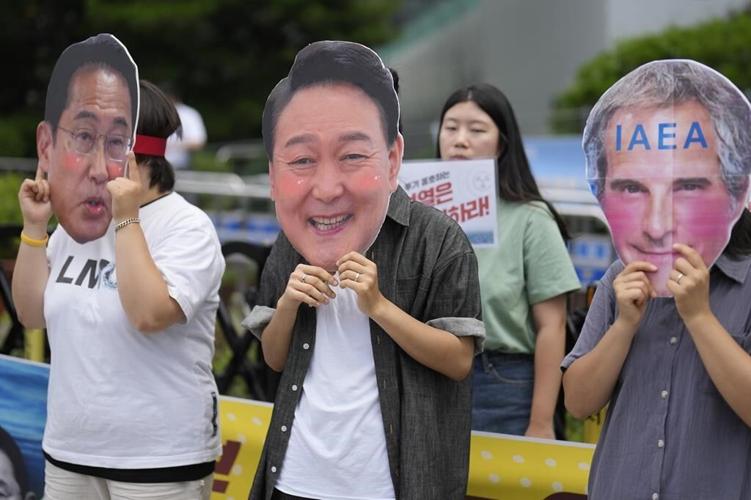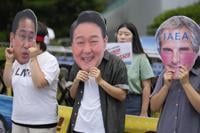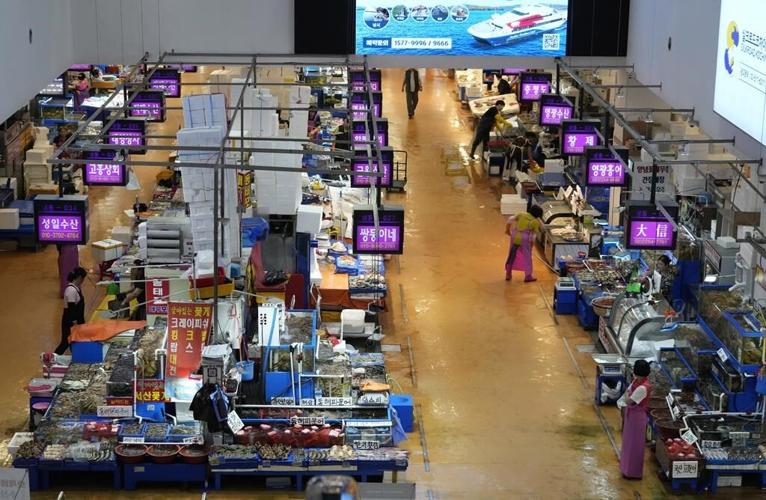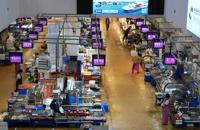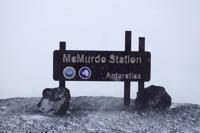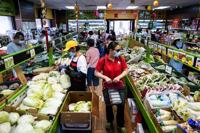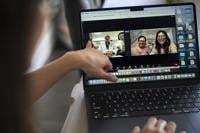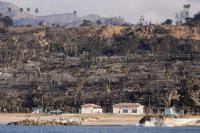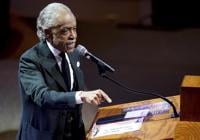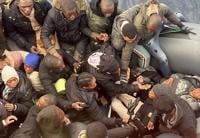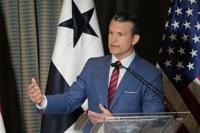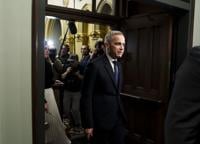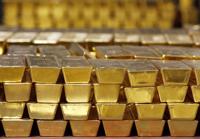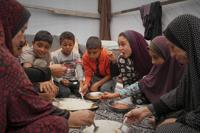SEOUL, South Korea (AP) — South Korea’s government on Friday formally endorsed the safety of Japanese plans to release treated wastewater from the damaged Fukushima nuclear power plant into the Pacific Ocean as it tried to calm people’s fears of food contamination.
The assessment was based on a 22-month review by government-funded scientists and aligns with the International Atomic Energy Agency’s views. The agency this week, saying the treated wastewater would meet international safety standards and pose negligible environmental and health impacts.
South Korea's review focused on any impact the wastewater release might have on South Korea, and "the result showed that its effect on our waters would be insignificant,” Bang Moon-kyu, the minister of the Office for Government Policy Coordination, said at a news conference.
Even before Friday’s announcement, South Korean officials were actively working to reduce public unease about the wastewater release, holding daily briefings to address what they described as “excessive fears” and expanding radiation tests on fish imported from Japan or caught in nearby seas.
Conservative lawmakers from President Yoon Suk Yeol’s governing party have even toured a seafood market to drink sea water taken from fish tanks in a bizarre gesture to certify food safety, although no wastewater has been released from Fukushima yet.
Public concerns persist as retailers report an increase in sea salt sales, apparently driven by consumers looking to stock up ahead of the release.
Liberal opposition lawmakers, who control a majority in South Korea’s parliament, have vowed an all-out fight against the Japanese discharge plans and accuse Yoon’s government of putting the nation’s health at risk by desperately with Tokyo.
“Japan says there are no problems science-wise, but I am still a little concerned,” said Yang Ok-ryeo, a 56-year-old fishmonger at Seoul’s Noryangjin seafood market, where lawmakers drank from fish tanks last week.
Lim Young, a 55-year-old customer at the market, expressed similar worries.
“I think it’s dangerous,” she said about Japan’s discharge plans. “Even with fish (caught in South Korea), I would still have doubts on whether they would be safe to eat.”
Speaking to reporters in Tokyo on Friday before heading to Seoul, IAEA Director General Rafael Mariano Grossi said he was willing to meet with South Korean opposition politicians to help ease public concerns.
Dozens of protesters gathered at an airport near Seoul ahead of Grossi’s arrival to denounce IAEA’s support of the discharge plans, holding signs reading “Dismantle IAEA!” and “Fukushima wastewater will definitely lead all humanity to disaster!”
“Everyone has trust in the scientific work of the IAEA,” Grossi said. “We are neutral, we don’t take sides and we look at the assessment and we make a decision.”
During their news conference in Seoul, South Korean government officials and scientists insisted the contamination levels of the released Fukushima wastewater would be within acceptable safety standards as long as the Japanese treatment systems work as designed.
“We confirmed that if the water release is carried out as planned, the discharge standard and target level (of radiation) would be consistent with international standards,” said Yoo Guk-hee, chairperson of South Korea’s Nuclear Safety and Security Commission.
The safety of Fukushima’s wastewater has been a sensitive issue for years between the U.S. allies, who have been working in recent months to over wartime historical grievances to address shared concerns such as the North Korean nuclear threat and China’s assertive foreign policy.
South Korea’s assessment was partially based on observations by a team of government scientists led by Yoo who were allowed to tour the Fukushima plant in May to review the discharge plans. Japanese Prime Minister Fumio Kishida agreed to that visit during a , in a show of his desire for improved ties.
Yoo said his team focused on verifying the capacities of the plant’s advanced liquid processing system, or ALPS, which is designed to reduce dozens of types of radioactive isotopes in the contaminated water to safe levels.
In a fiery speech Friday, , who narrowly lost to Yoon in the 2022 presidential election, attacked the credibility of the IAEA assessment and urged Yoon to call out the report as unacceptable.
Lee also urged Yoon’s government to demand that Japan accept a joint inspection by South Korea and other nations in the Pacific over the wastewater concerns, and put the release plans on hold until there’s “scientific, objective and neutral verification.”
“(Yoon’s government) is putting the lives and safety of its citizens on the line,” Lee said.
A in 2011 destroyed the Fukushima plant’s cooling systems, causing three reactors to melt and release large amounts of radiation.
Tokyo Electric Power Company Holdings, which operates the facility, has been storing the ALPS-treated water in hundreds of tanks that now cover most of the plant and are nearly full. Japanese officials say the tanks must be removed to make room to build facilities for the plant’s decommissioning and to minimize the risk of leaks in case of another major disaster. The tanks are expected to reach their capacity of 1.37 million tons in early 2024.
Japan first announced plans to discharge the treated water into the sea in 2018, saying that the water will be further diluted by seawater before being released in a carefully controlled process that will take decades to complete.
___
AP video journalists Yong-ho Kim and Yong Jun Chang in Seoul, South Korea, and writer Mari Yamaguchi in Tokyo contributed to this report.

